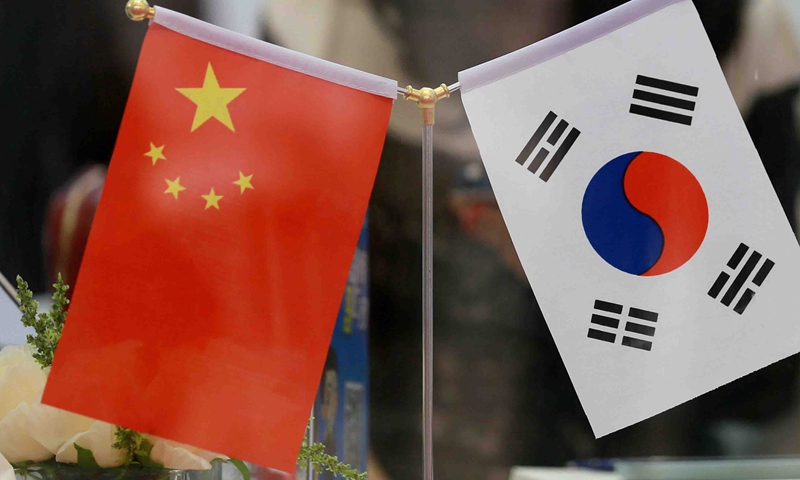Chinese FM's S.Korea trip yields 10-point consensus
Source: Global Times Published: 2020/11/26 15:47:11

File photo:CGTN
Chinese State Councilor and Foreign Minister Wang Yi has made fruitful achievements in his tour to South Korea which started Wednesday, reaching a ten-point consensus on issues ranging from anti-pandemic cooperation and advancing the Free Trade Agreement (FTA) to cultural exchanges and a blueprint for future bilateral ties.
China and South Korea agreed to follow the guidance of the two countries' leaders, strengthen communication and exchanges, enhance friendship and mutual trust, deepen pragmatic cooperation and push the China-South Korea strategic cooperative partnership to a new level, according to the official website of the Chinese Foreign Ministry.
According to Yonhap news agency, Wang said a visit by President Xi Jinping to South Korea would be possible as long as conditions are ripe. Wang also stressed that the two nations should work to pave the way for Xi's visit.
Speaking on the possibility of President Xi's visit to South Korea, Chinese Foreign Ministry spokesperson Zhao Lijian told a press conference on Thursday that China and South Korea have been in close communication on cooperation in various fields, including high-level exchanges.
The ten-point consensus made during Wang's visit is as follows:
1. The two nations will continue to strengthen cooperation in the fight against COVID-19, strengthen joint prevention and control efforts, and improve and gradually expand the application scope of an "express lane" system. The two nations will also push the establishment of a cooperation mechanism for health and epidemic prevention in Northeast Asia.
2. The "Commission on the Future Development of China-S.Korea Relations" will be set up to draw up a blueprint for the development of bilateral relations over the next 30 years by taking the opportunity presented by the 30th anniversary of the establishment of diplomatic ties in 2022.
3. The two countries will launch the "2+2" dialogue on diplomatic and security affairs and also launch a dialogue on maritime affairs, and hold a new round of high-level strategic dialogue between foreign ministries to enhance diplomatic and security mutual trust and promote cooperation on maritime affairs.
4. The two countries agreed to launch the "China-S.Korea Cultural Exchange Year" in 2021 and 2022 to prepare for the 30th anniversary of diplomatic ties.
5. China will speed up connections between the Belt and Road Initiative and the national development strategies of Seoul, promote cooperation in third-party markets, strengthen cooperation in emerging industries and other key areas, and deepen the high-quality integrated development of the two countries.
6. The two countries agreed to conclude the second phase of the China-South Korea Free Trade Agreement (FTA) and formulate the Joint Plan for China-South Korea Economic and Trade Cooperation (2021-25) at an early date, so as to create better conditions for bilateral economic and trade cooperation.
7. The two countries will support each other in hosting the 2022 Beijing Winter Olympic Games and the 2024 Gangwon Winter Youth Olympic Games. After the epidemic has been effectively brought under control, people-to-people and cultural exchanges will be further invigorated between the two countries.
8. China and South Korea will continue to work together to safeguard peace and stability on the Korean Peninsula and push forward the political settlement process. China firmly supports North and South Korea in improving relations and promoting reconciliation.
9. China supports South Korea in hosting the ninth China-Japan-South Korea leaders' summit. China and South Korea will work with Japan to actively advance the FTA negotiation process.
10. China and South Korea will work together for the early implementation of the Regional Comprehensive Economic Partnership (RCEP), uphold multilateralism and free trade, build an open world economy, and jointly tackle climate change and other global challenges.
Posted in: DIPLOMACY